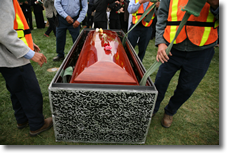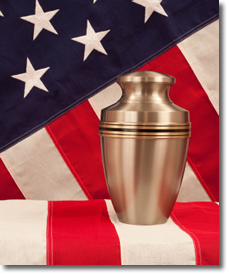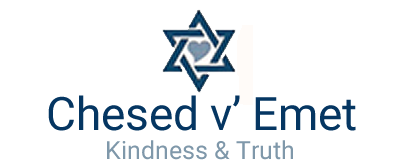Burial Vaults & Cremations
Burial Vaults - Also known as “Outer Burial Containers,” are not required by State law. Rather, each cemetery makes its own rules and regulations regarding the use of burial vaults. As it happens, most cemeteries in Illinois require the use of some type of grave liner or, more commonly, a burial vault.
Cremation - There are many myths surrounding cremation and we will look at some of the misunderstandings about cremation. First of all, cremation is simply an alternative form of disposition. The technical definition of cremation is the immediate reduction by intense heat of a deceased human being. It is not the final step in the respectful disposition of a person, but rather it is part of the process.
Burial Vaults
Most burial vaults in this part of the country are made of concrete. Simply put, a burial vault is a concrete container designed to enclose the casket before burial. A vault has a bottom, sides, and a top. The main purpose of burial vaults is to prevent the grave from collapsing or sinking as the weight of the earth on an exposed casket would, at some point, cause the casket to collapse as it deteriorates.

As with caskets, there are basically only two types of burial vaults. The first is an unfinished raw concrete container and is designed to meet the minimum cemetery requirements. The second type, known as a warrantied burial vault, in addition to meeting the cemetery requirement to keep the grave from sinking, warrantied vaults are designed to keep water and other grave elements from entering the casket area. Made of heavy-duty, reinforced concrete, these vaults have specially developed materials adhered to the insides of the concrete vault. Some vaults are lined with a man-made polymer, while some vaults are lined with stainless steel, copper, or bronze. The more elaborate the construction of the vault, the more expensive it is. Burial vaults come in varying sizes and in some of the older cemeteries, not all vaults can fit in the grave. Therefore, “special” vaults are made. These vaults have thinner side walls than standard vaults.
Also available, are what I call the “oxymoron vaults.” Jewish tradition calls for the remains to be buried in the earth. Ssome authorities claim that because concrete is made from sand, using a burial vault meets the traditional obligation of being buried in the ground. For those who wish to follow the tradition as far as possible, an “Orthodox” vault is an option. An “Orthodox” vault is a minimum concrete vault that has no bottom. It's made with sides, ends, and a top which meets the cemetery requirements to prevent the grave from sinking, but allows the casket to rest on the bottom of the grave, in direct contact with the earth. As with our caskets, Chesed v'Emet offers burial vaults in almost any price range. Because our prices are significantly lower than other funeral service providers, families can purchase a burial vault from Chesed v'Emet even if they have chosen another provider for all their other services

Cremation
It is a misnomer that what is left of the body are ashes. At the completion of the cremation, what is left are those bones that cannot be further reduced. These bones are pulverized into fine powders that are incorrectly called ashes. These cremated remains are what are given to the family for final disposition. Cremated remains can be buried in a cemetery, placed in a niche in a cemetery columbarium, or a host of other options. If the family chooses, the cremated remains can be scattered at sea (following certain ordinances) or they can be buried or scattered on property that is owned by the family. Cremated remains may be placed in a decorative urn and kept by the family.
When a family chooses cremation, it does not prevent them from having a funeral service of some kind for their loved one. As a matter of fact, with the choice of cremation, there are even more options for a memorial service that is designed to meet the needs of the family. For instance, since there is no cemetery to go to after the service and since time is not a consideration for scheduling a service. Families can arrange for a service in the late afternoon or evening, thus conveniently allowing more people to attend the service. Cremation allows the family to decide whether the deceased's body will be present for the service or not. When the body is not present, it's usually referred to as a “memorial service.”
When this option is selected, there is no requirement to select a casket. Since most crematories require the remains be encased in something suitable for the cremation, an “alternative container,” usually made of rigid cardboard may be used, thus reducing the total costs. If a family chooses to have the body present, there are two options available. One is to use what's known as a “rental casket.” Simply put, the body is placed into an insert which is then placed in a casket shell for the service. Afterwards, the insert is removed from the shell and this container, with the remains inside, is then cremated. The other option is for the family to select a casket as they would for a traditional funeral with burial that is suitable for cremation. Depending upon the family's selection, a wood casket could, in fact, be less expensive than choosing a rental casket.
Within the many options available when choosing cremation is what is known as a “direct cremation.” This is the least expensive option because it calls for the minimal amount of service and merchandise. A direct cremation calls for the arranging for the deceased to be taken from the place of death, all the legal paperwork to be completed, the remains taken to the crematory as soon as possible, and the cremated remains returned to the family for final disposition. Choosing a direct cremation does not prevent a family from arranging a memorial service, either before or after the cremation has taken place. Memorial services can be held in a funeral home chapel, a synagogue or church, the family's home, or any place that is meaningful to either the deceased or the family. Although cremation is not allowed under traditional Jewish law, some Conservative rabbis and most Reform rabbis will officiate when cremation has been chosen. Since it's the philosophy of Chesed v'Emet to serve all families and to meet their needs, we offer a wide range of choices when it comes to cremation. Please see the Professional Services and Service Packages pdfs for our cremation prices.

